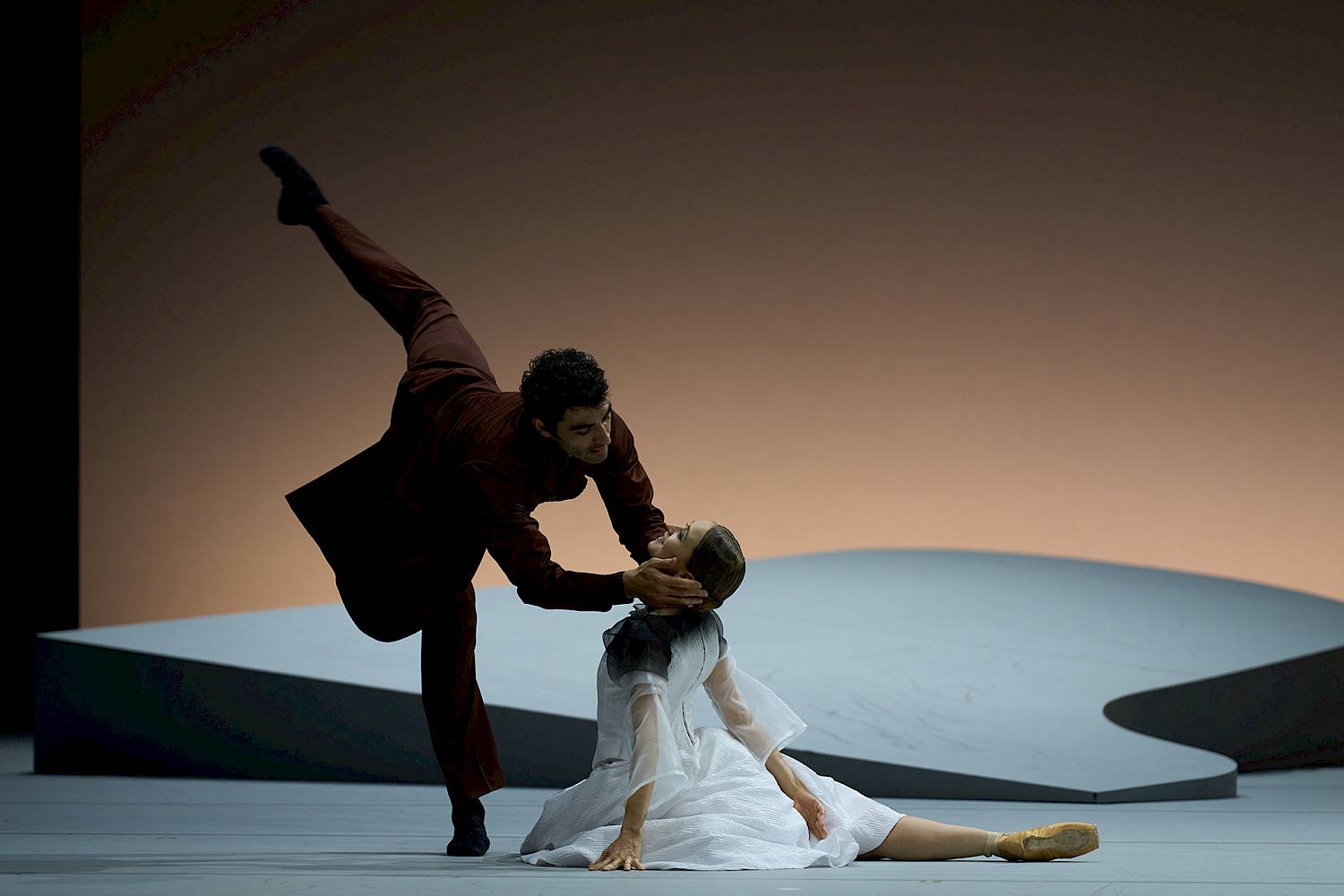
Your visit
Clara
How do you make the right decision between being an artist and «real» life?
Following up on her ballet The Cellist, in which she examined the great cellist Jacqueline du Pré, Cathy Marston once again devotes herself to an important musician, here tracing the various facets of Clara Schumann's life. It was a life characterized by highs and lows, and one that she devoted entirely to music as a daughter, artist, wife, mother, nurse, manager, and muse.
The duration of the performance is about 2 hour 40 minutes incl. two intermission. Doors open one hour before the performance. On this page you will find further information about your visit.
Food & Beverage
Save yourself the waiting time and enjoy the breaks to the fullest! Here you can place your order up to one day before the performance and conveniently pay online, so that everything is ready for you at a table during the intermission.
Abstract
Clara Schumann was an excellent composer and arguably the most important pianist of her time. Torn between social constraints and her career, she led a grueling life. Her childhood full of sacrifices, her extraordinary talent, her great successes as a pianist, her love for the composer Robert Schumann, which she fought for against her father, and the raising of seven children provide enough material for myths and clichés: from child prodigy to the ideal woman of romanticized notions of love, from paragon of motherhood to misunderstood composer.
Following up on her ballet The Cellist, in which she examined the great cellist Jacqueline du Pré, Cathy Marston once again devotes herself to an important musician, here tracing the various facets of Clara Schumann's life. It was a life characterized by highs and lows, and one that she devoted entirely to music as a daughter, artist, wife, mother, nurse, manager, and muse.
Yet it was always characterized by triangular relationships: Between Clara and her divorced parents, between Clara, her father, and Robert Schumann; Clara between Robert and Johannes Brahms. The relationship between Clara and Johannes Brahms in particular has repeatedly sparked the biographer’s imagination. What is certain is that Brahms, who was 14 years younger, was immediately fascinated by Clara when he introduced himself to the Schumanns in Düsseldorf in 1853. They developed an intimate friendship, which lasted beyond Robert Schumann's illness and death in 1856, and despite intermittent upsets, lasted until Clara's own death in 1896.
In her ballet, Cathy Marston tells of dedication and passion, of inspiration and responsibility. How do you make the right decision between being an artist and «real» life?
In his ballet score, Philip Feeney, Cathy Marston’s long-time collaborator, weaves together pieces not only by Clara, but also by Robert Schumann and Johannes Brahms. Daniel Capps will conduct the Philharmonia Zürich. German pianist Ragna Schirmer, a proven specialist in the work of Clara Schumann, will perform at the piano.

